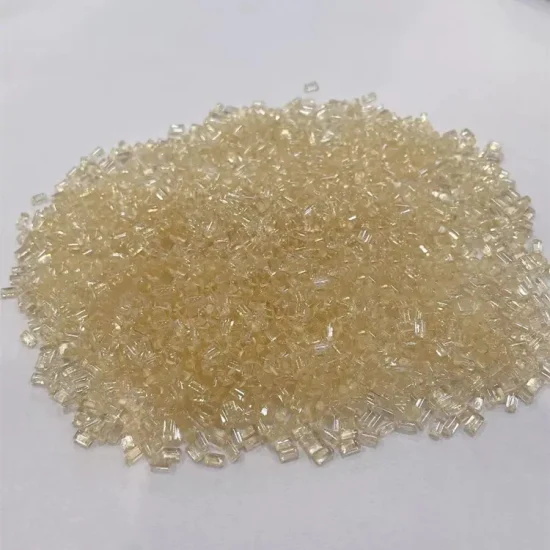
ZTD Polymer provides high-performance PSU Material (Polysulfone), including PSU Sheets, PSU Rods, and PSU Tubes, suitable for automotive, electronics, and medical industries. Our PSU material is known for its excellent high-temperature resistance, mechanical strength, and chemical resistance.
PSU (Polysulfone) is a high-performance engineering plastic with the following properties:
1.High-Temperature Resistance: Can be used continuously in temperatures ranging from -100°C to +160°C.
2.Mechanical Strength: Excellent tensile strength (≥70 MPa) and rigidity.
3.Chemical Resistance: Resistant to acids, alkalis, alcohols, and hydrocarbons.
4.Self-Extinguishing: Complies with UL94 V-0 flame retardant rating.
5.Radiation Resistance: Resistant to β, γ, X-rays, and microwaves.
PSU material is widely used in the following industries:
1.Automotive Industry: Sensor housings, connectors, and fuel system components.
2.Electronics Industry: High-frequency circuit boards and insulating components.
3.Medical Industry: Surgical instruments and sterilization equipment.
4.Food Industry: Food processing equipment and dairy product pipelines.
PSU material can be processed using the following methods:
1.Injection Molding: Suitable for complex-shaped parts.
2.Extrusion: Used to produce sheets, rods, and tubes.
3.Machining: Can be machined through turning, milling, and drilling.
1.High-Quality Raw Materials: Sourced from internationally renowned suppliers.
2.Customization Services: Tailored sizes and processing solutions.
3.Technical Support: Full-process support from material selection to processing.
4.Fast Delivery: Reliable supply chain for quick response.
FAQ:
What is PSU Material?
PSU Material, known as polysulfone, is an amber-clear, high-performance thermoplastic engineering plastic. It combines excellent physical, mechanical, thermal, and electrical properties that enable it to excel in many engineering applications.
What are the main performance characteristics of PSU Material?
The key performance characteristics of PSU Material include:
Heat Resistance: Can maintain excellent performance over an extremely wide temperature range (-100°C to +200°C) and maintain high mechanical strength at high temperatures.
Cold resistance: maintains good toughness and stability in extremely cold environments.
Corrosion resistance: excellent resistance to a variety of acids, alkalis, salts and other chemical media, suitable for a variety of harsh chemical environments.
Electrical insulation: excellent electrical insulation properties, its dielectric constant and dielectric loss is low, to ensure the long-term stable operation of electrical equipment.
Mechanical properties: high tensile strength, bending strength and impact toughness to meet the requirements of various mechanical loads.
In what fields is PSU Material widely used?
PSU Material is widely used in many fields due to its excellent performance characteristics, including:
In the field of electronics and electrical appliances, it is used as insulating materials, high-temperature-resistant parts, coil skeletons, etc. to ensure the stability and reliability of electronic equipment.
Automobile manufacturing field: used as engine hood, intake pipe, engine heat shield and other high temperature parts, to ensure the normal operation of automobiles under high temperature and high load.
Medical field: used in the manufacture of medical devices, surgical instruments, implants, etc., because of its non-toxic and tasteless and good biocompatibility, no negative impact on the human body.
Food packaging field: used as food containers, bags, tableware, etc. It is non-toxic and tasteless to food, and has high temperature resistance and transparency.
Construction field: Used as waterproof materials, wall panels, etc., providing excellent protection and decorative effect for buildings.
What is the heat resistance of PSU Material?
PSU Material has excellent heat resistance and can maintain good performance over a wide temperature range of -100°C to +200°C without significant performance degradation. This has led to a wide range of applications in equipment components that operate in high-temperature environments, such as automotive engine peripheral parts and high-temperature parts in electronic equipment.
What is the corrosion resistance of PSU Material?
PSU Material has excellent corrosion resistance and is resistant to a wide range of chemical media such as acids, alkalis and salts. This makes it widely used in the chemical industry, medical and food packaging, and especially in medical devices that need to resist the erosion of biological fluids such as blood and urine.
What are the electrical insulation properties of PSU Material?
PSU Material has excellent electrical insulation properties, with a low dielectric constant and dielectric loss, and is able to maintain stable electrical performance in harsh environments such as high humidity and high temperature. This makes it widely used in the field of electronics and electrical appliances, such as in the manufacture of insulating materials and encapsulation materials for electronic components to ensure the long-term stable operation of electronic equipment.
What are the advantages of PSU Material over other plastics?
The advantages of PSU Material over other plastics are mainly due to its high performance and versatility. It combines excellent heat resistance, cold resistance, corrosion resistance, and electrical insulation to maintain stable performance in a variety of harsh environments. In addition, PSU Material has high strength and rigidity, enabling it to replace some metal materials and reduce product costs.
What is the chemical stability of PSU Material?
PSU Material has relatively good chemical stability and is resistant to a wide range of chemicals. However, under certain chemical environments, such as certain strong acids, bases or organic solvents, its performance may be affected. Therefore, when choosing to use PSU Material, comprehensive consideration needs to be made according to the specific application environment and requirements.